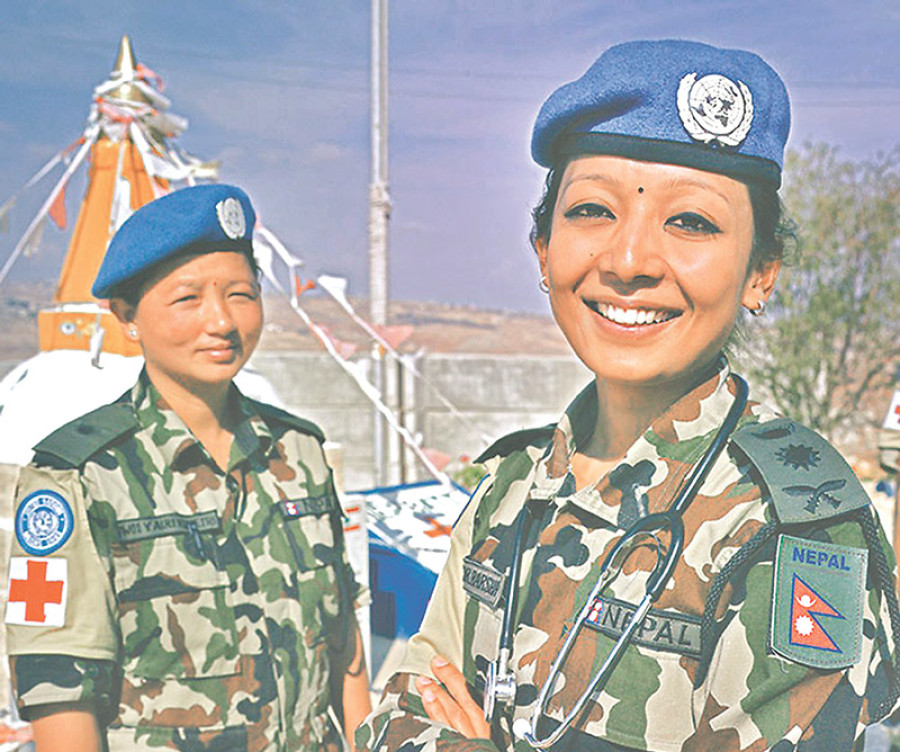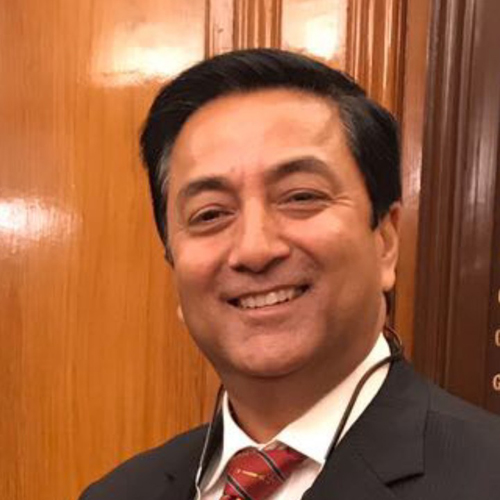Opinion
Modernise the military
Transformation and transparency appear to be in the minds of many in the security forces, especially the Nepal Army (NA).Security is interrelated with the country’s location and relations with other countries.
Binoj Basnyat
Transformation and transparency appear to be in the minds of many in the security forces, especially the Nepal Army (NA).Security is interrelated with the country’s location and relations with other countries. The primary responsibility is to have an appropriate force to maintain and protect the country’s sovereignty, independence, integrity and law and order.The period since 1996 has been transformative, and national security challenges continue to evolve. We need new ways to coordinate and develop our capability and form a national security environment as the country is shifting to a new political and administrative structure.
Nepal requires a professionally sized force that can move quickly to protect the country from external aggression, address internal security challenges, protect the environment and conduct disaster relief operations. The NA can be designed with strike and holding division commands by reorganising the fighting force or the infantry from combat services and combat service support. Professional duties and career planning demand streamlining of their particular specialties or services for a better force of tomorrow. Self-sustainability for training, facilities, arms and ammunition, and equipment are essential to execute specialised obligation in times of need.
Inspiring strength and trust
The history of the NA provides examples of strong leaders who left their mark for better or worse. A shift from central to collective and pivotal responsibilities is a step towards the professional development of the Army. The Chief of the Army Staff (COAS) should formulate long-term plans and policies during his or her tenure. The COAS should ensure that the programmes are visionary and there are adequate human and financial resources to implement them. He or she should also monitor their progress and provide instructions when necessary. The heads of department should implement and sustain the agenda with the authority to mobilise resources as appropriate. This will be a step forward for executing cooperative responsibilities that the Army so urgently requires for collective responsibility and administrative and professional growth.
The supremacy of the COAS can be misrepresented both in finance and influence, so a balancing system in governing the NA should be made possible with transparency besides discouraging the politics of governance. The transfer of senior, mid-level and junior officers should be obligatory, and it should be designed in a way that will benefit the institution so that their experience can be used for its improvement. Leading is a solemn obligation, and all commanders need to move up through the ranks to be defined as leaders. Many commanders are isolated from institutional matters and depend on centralised arrangements. Policies and laws should be transparent so that officers can contribute and pursue leadership as a community and connect with their fellow leaders.
The post-conflict scenario has distorted the approach and attitude of individuals joining the Army. The challenge remains to sustain military values, which naturally derive from the cultural and social configuration of the country. This is what keeps personnel serving in the force under one way of thinking, deliberating and behaving so as to inspire strength to perform the duties designated by the state. The NA is acknowledged to possess the highest standard of discipline and willingness to sacrifice lives for the country. But this requires high morale and trust. This occupies a decisive position in the NA besides being an imperative question because power is dangerous; those who hold power may start to think that they can do whatever they want forever.
Commanding is both an inner and outer journey. The inner journey is to create a deep sense of values among leaders, a narrative that is unique to them and the courage to act on their values. The outer journey should make them understand that the Army is in a time of extreme change, and it should prudently use the power and resources that are at its disposal.
NA Goal 2030
Reports of financial mismanagement and investigation are rife these days. Charges of grave corruption and financial misdealing have been made against some commanders, but some have not been accused even though they may be equally involved. This could lead to frustration. Arrangements and procedures for looking into the files and modernising the accounts department of all levels are necessary. The Army Welfare Fund should be made transparent, and the possibility of replacing uniformed accountants with civilian accountants should be explored. Learning from the British Army would be a good example.
The new National Security Policy of Nepal is the overarching policy document that steers national security efforts over a particular era, but it should provide an amalgamated national security scheme. This vision needs to be supported by five national security objectives: Protecting and strengthening sovereignty; ensuring a safe and resilient population and environment; securing our resources, infrastructure and institutions; promoting a favourable regional and international environment; and providing effective disaster relief response or management.
Towards this end, the government should develop a single combined force with capabilities to enable the NA to achieve national security outcomes. It is also time for all politicians, bureaucrats and NA senior leaders to arrange and shape the force by enforcing departmental accountability, ensuring more transparent financial provisions and protecting values. The current challenge is to preserve the respect and trust that the Army has earned. The Army is an instrument of the state and, at the same time,a tool of the government. The NA should come up with a long-term competitive strategy which can be adopted as NA Goal 2030 for modernisation since we are living in a country marked with uncertainty, volatility and deep transformational change.
Basnyat is a political and security analyst and a retired Army Major General




 9.7°C Kathmandu
9.7°C Kathmandu










